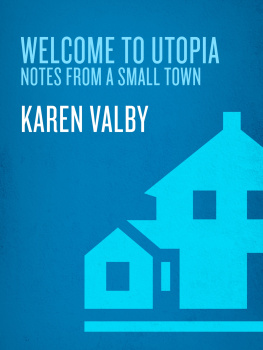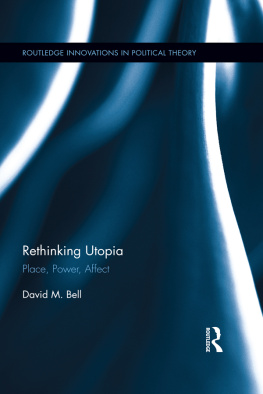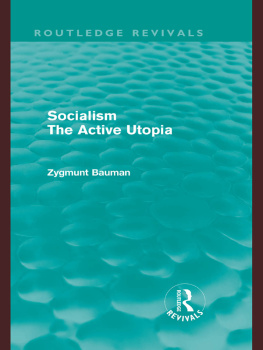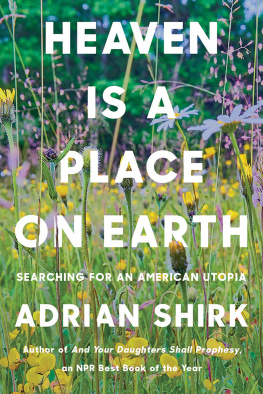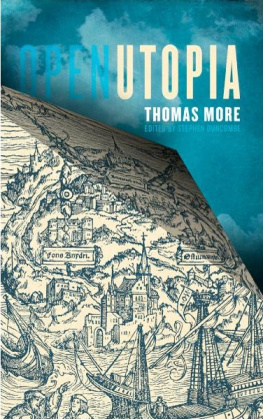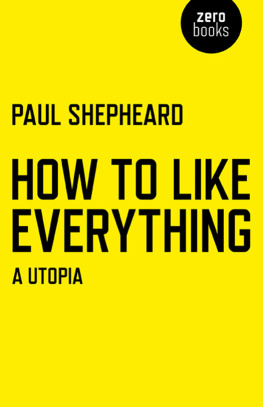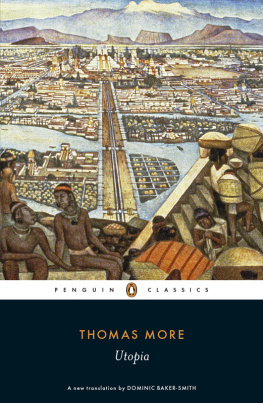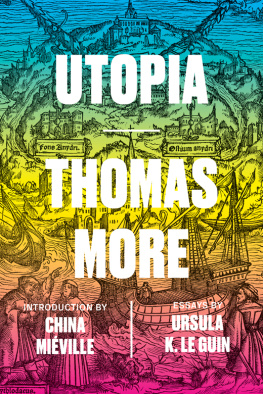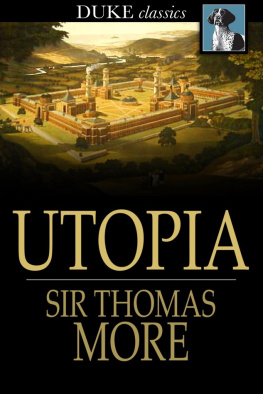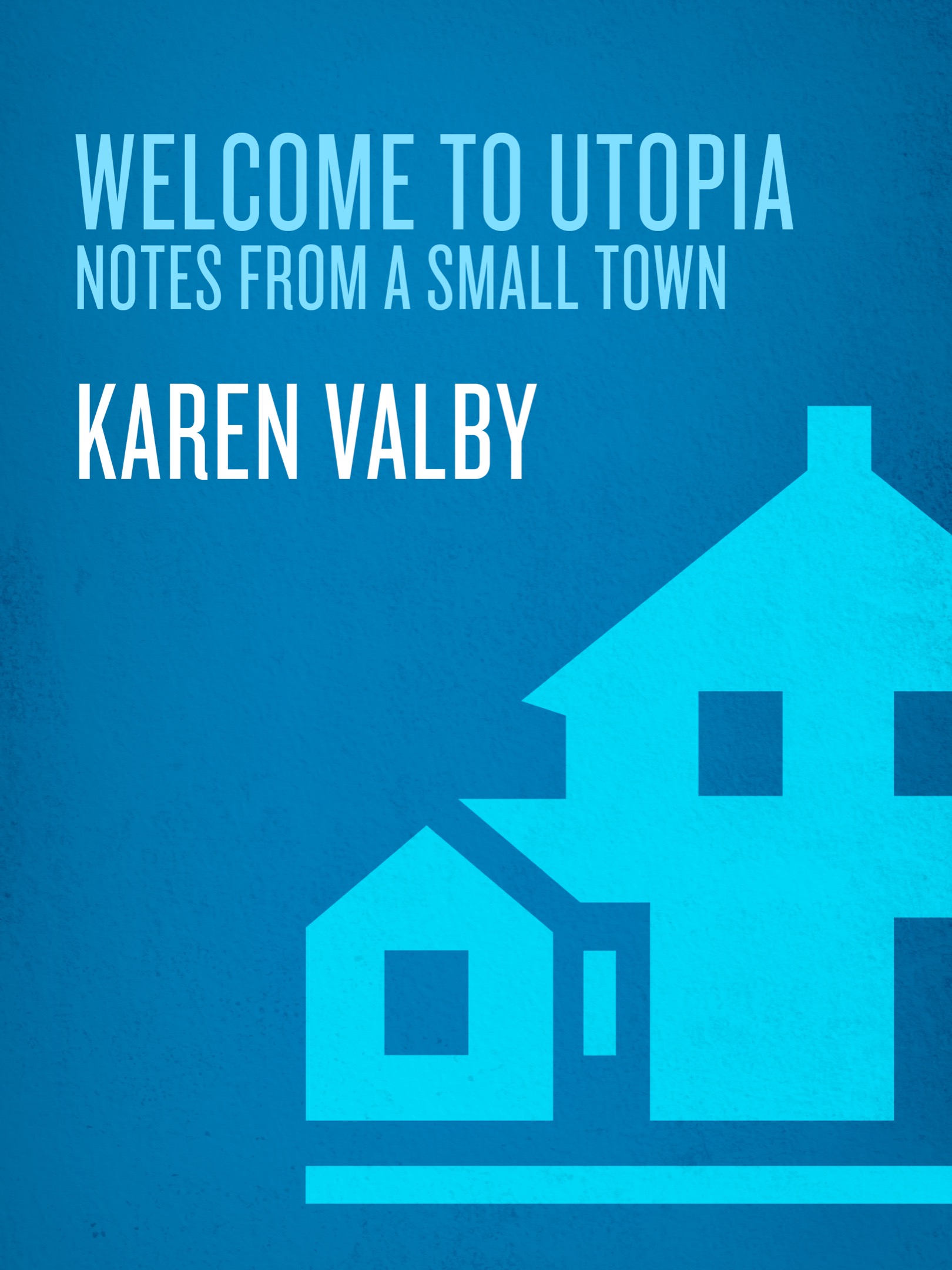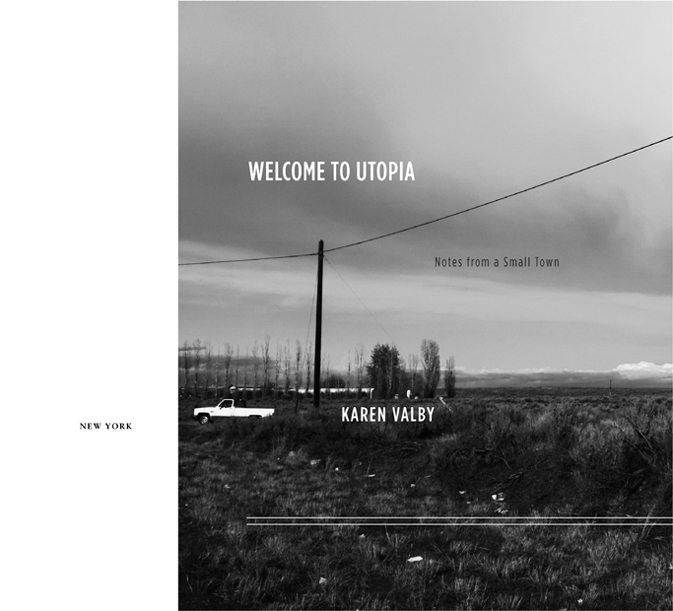Contents
Landmarks
Contents
Chapter 1
Chapter 2
Chapter 3
Chapter 4
Chapter 5
Chapter 6
Chapter 7
Chapter 8
Chapter 9
Chapter 10
Chapter 11
Chapter 12
INTRODUCTION
I n 2006 my editor at Entertainment Weekly asked me to go looking for an American town without popular culture. He wanted to hear from people not yet swallowed whole by the all-consuming, trend-hungry maw of Hollywood. In my search for the perfect town, I heard from an old college buddy who had grown up ninety miles west of San Antonio, in a ranching community far off any major highway. Back when she was in grade school the only pop culture available to her and her graduating class of thirteen was a shelf of videotapes for rent down at the gas station. That the name of her hometown happened to be Utopia was a gift.
Utopia has no mayor or local government, so there is no one to record the official population, but locals guess that a few hundred people call the town home. Utopia has zero stoplights, one constable, six real estate offices, and seven churches. There are no chain stores, and forget about fast food. Up until the early nineties, if you wanted to watch television you better have liked what was playing on CBS or NBC. Those were the only two channels people in Utopia could get, unless the wind in the Sabinal Canyon wasnt blowing; then you might twist the rabbit ears just right and luck into ABC. There is one honky-tonk radio station, no book or music stores, and the closest movie theater is a fifty-minute drive to the Forum 4 in Uvalde. Diane Causey, the elegant manager of the antiques store Main Street Utopia, spoke to me somewhat wistfully of her towns former cocoon from the outside world: If we didnt see it on the old black-and-white TV or hear about it on the San Antonio radio station, we didnt know it existed.
In a small town, change is often cast as the enemy. Shortly before I arrived in Utopia, the people had gone to battle against sidewalks. When the community gathered at the Senior Center to discuss the possibility of the highway department building sidewalks along Main Street, the conversation got so heated that it seemed like someone might bust out a shotgun to make themselves heard. We dont want em here in our town, cried one older man, shaking his fist angrily in the air, as if the subject at hand were pedophiles or drug dealers.
But as I stuck around I found that Utopia was hardly some hermetically sealed biosphere. Things were changingand fast. The recent introduction of broadband and satellite TV had given the 190 kids enrolled from pre-K through the twelfth grade at Utopia School a flung-open window on life beyond their towns borders. The military had extracted classrooms full of Utopias young men and women and scattered them around war zones several time zones away, transforming the kids and the families they left behind.
The outside world that had been held at bay for so long had suddenly invaded. On one side were Utopias traditionaliststhe old-timers whose lives were tightly braided into the history of the town, whose investment in the community was blood- and bone-deep, and who felt overwhelmed by the suddenly accelerated pace of change; on the other side, Utopias fifth column, agitating for change and searching for a way out. My initial story was about what felt like a discovery: a deceptively quiet and isolated town forced to reckon with a new reality, full of upstarts and patriots, surrounded by forces of destruction or liberation. All of this playing out on a half mile stretch of Main Street.
Great literature and pop songs are forever being built around this struggle of young peoplethe artists, or merely the unusualtrying to break free from the familiar. In a small town, everything and everyone is already known. People know where youre going before the screen door slams shut behind you. Theres no anonymity, no encouragement to experiment with identity. You can run out of air fast. Its easy to spot someone who grew up in a small town and got out: They have a breathless air about them, their expressions somehow startled and dreamy. Their stories of flight are both mundane and heroic. Whether you grew up in the suburbs or the city, many of us know what it feels like to run from who or what you dont want to be. Its just more romantic if that escape route was down Main Street, bound for the highway.
But what I didnt presume to understand about Utopia was what was going on in the minds of those who chose to stay, the people whose deepest desire was to make a home for themselves down the street from where their parents lived and their grandparents were buried. Roots are rare these days. So many of us have lost a connection to the ground. Ive lived in four different cities and twelve different apartments since I graduated from college. My mom is dead. My dad lives in a Washington, D.C., suburb, where we moved after his job was transferred when I was in the sixth grade. My daughter talks to her relatives on Skype. Sometimes I long for a hometown like Utopia. A place like that can tether a personwhether you comfortably grow old and die there or spend the rest of your life cutting yourself free.
Some New York friends made easy cracks about what I might find when I got to town. Meth labs and abortion clinics, presumed one, pleased by his smug reduction. Maybe youll get invited to a book burning, smirked another. These were people, good people, who lacked a proper imagination, revealing themselves to be every bit as provincial as they figured folks from small towns to be. As for Utopians distorted image of what it might mean to come from New York, I was asked more than once if all my friends there were Eye-talian and if Id ever witnessed a shooting at a restaurant or been trapped in a blackout, fearing for my life as a subway quickly drained of oxygen. Once I was goaded into defending the merits of pizza (pizza!), only to be told by a horseshoe of unimpressed old-timers that Id get a better meal if I took the frozen pizza out of the box, tossed it in the trash, and gnawed on the cardboard instead.
Im sure I shook hands with a few people, some of whom would probably surprise me, who were cooking meth in their kitchens or selling beer to minors out of their garages. Some girls get pregnant young, and their weary mothers bear the brunt of childcare. As anywhere else, there are ignorant people in Utopia, crimes are committed, and there are youthful mistakes that must somehow be made right. But that in the end isnt what defines Utopia, any more than a crook in a slick suit or a bad rush-hour commute captures city life. No matter how sophisticated or righteous we believe ourselves to be, were all so clueless and careless when confronted with the idea of a world we know nothing about.
That in the end is why I returned to Utopia. I wanted to get past the mythology of the small town and understand it as a real place where actual people live. Utopia is changing, but its not in a state of crisis. Nobody has been murdered. A prison hasnt moved in or out. Crystal meth hasnt reduced folks at the caf to toothless ghosts. Utopia is just a small town, solitary and disconnected for the time being. But within the next generation, its clear that Utopia will lose much of its sense of history and tradition and flavor. The old-timers die off, the young people leave, and in come new arrivals, retirees and sportsmen with disposable incomes and a city-nourished appetite for expensive views.

